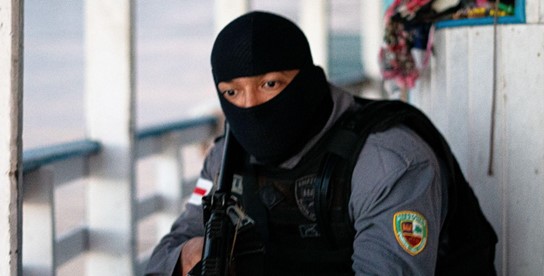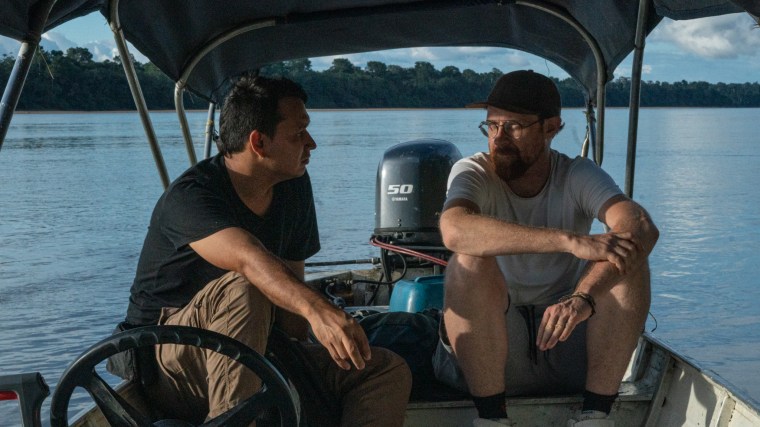In February 2023, Dutch journalist Bram Ebus, Colombian videographer Andrés Cardona, and Colombian photographer Alex Rufino, were threatened by the military police of Japurá in the Brazilian state of Amazonas while reporting on illegal mining in the Amazon region as part of Amazon Underworld, an investigative project on crime and corruption in the region.
On February 6, the trio, a boat captain, and the captain’s wife left La Pedrera, Colombia, to travel along the Caquetá River to the mouth of the Puruê River in Brazil. They were spending the night at a mining dredge when a military police boat also arrived to stay the night at the dredge. Military police officials said that mining at the river is illegal, according to Ebus, who communicated with CPJ via video, email, and text messages. Ebus said that police were looking for a suspect who allegedly fatally shot the operator of a different dredge and stole half a kilo (about one pound) of gold.
“I felt that we could run into trouble identifying ourselves as journalists, because I sensed something strange was going on while the military police stayed overnight on an illegal mining dredge, so I told them that I was an anthropologist (which I am) and that we were in transit,” Ebus said.
Ebus, Amazon Underworld’s lead journalist and research coordinator, is an award-winning investigative journalist who has been living in Bogotá, Colombia, for 10 years. He was also a fellow for the Pulitzer Center’s Rainforest Investigations Network. Cardona and Rufino are freelancers who worked on the Amazon Underworld project.
On February 7, the journalists continued along the river interviewing miners, who told them that military police receive payments of 30 grams (one ounce) of gold per month from each dredge to protect them against dissidents from the Revolutionary Armed Forces of Colombia (FARC). Brazil launched a military operation to remove the guerrillas in 2021, but an April 2023 clash between FARC dissidents and unknown gunmen that left several guerrillas dead indicates they remain a presence in the area.
On February 8, a policeman wearing a balaclava and wielding an automatic weapon and another policeman who appeared to be his superior approached the journalists while they prepared breakfast at the riverbank where they were moored. The pair aggressively asked Ebus if they were from a television station because the journalists had taken photos and filmed video.

According to Ebus, the policeman who seemed to be in charge insinuated that nobody would know if Ebus was hurt or killed.
The journalists complied when the policeman with the balaclava ordered them to erase the content of two memory cards. The police confiscated three other memory cards and two adapters from the journalists. After the police left, the journalists decided to abort the trip.
Ebus said they then followed the group’s security protocol, alerting colleagues monitoring their trip through a device that tracked their location and requesting they contact Japurá police and other authorities, such as the Ministry of Justice and Public Security and the Dutch and Colombian embassies in Brazil.
Three hours later, Ebus said the same military police riding in a boat stopped the journalists’ boat in the middle of the river to return the memory cards and adapters. The policemen warned them of the risk of pirates and said that the alleged killer was still at large. Ebus told police they were returning to Colombia.
Also on February 8, military police in Amazonas state sent a text message—a statement explaining their interactions with the journalists that Ebus said contained falsehoods—to the Brazilian editor of the Amazon Underworld project. The editor filed an online complaint about the incident. CPJ sent text and email messages to the military police press officer but did not immediately receive a response.
[Editors’ Note: The fourth paragraph in this report has been updated to include Ebus’ fellowship at the Pulitzer Center’s Rainforest Investigations Network.]
